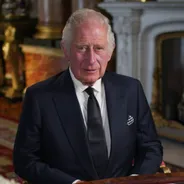The Russian hacker has become the perfect boogeyman for the digital age and much of the west's current anxiety about the state of modern politics can be linked its fear of outside influence, or of the manipulation of the media. On social networks, such as Facebook, Twitter and Reddit, troll farms designed to control the flow of information work constantly to spread fake news on an international level. Indeed, the issue has got so dire that many cybersecurity experts claim that it is almost certain that Russian bots and hackers have interfered in the 2016 US presidential election.
But what is life actually like for these covert trolls? What would motivate somebody to become one? After all, it doesn't exactly sound like the most promising career. But lately, a few ex-trolls and hackers have come forward to talk about their experiences working for the Kremlin, and their statements reveal some extremely intriguing details. For those who are unfamiliar with the way these farms work, allow me to elaborate.
A troll farm is essentially a propaganda machine, which disseminates false information via fake social media accounts. To do this, Russian hackers will employ the use of multiple bot accounts, which will post to social media automatically and without the need of a human operator. For example, during the 2016 presidential election, Russian hackers would post original status updates supporting policies and ideologies that would sow division and promote partisan dispute. Russian troll factories, such as Glasvet and the Internet Research Agency, would flood social media with various hyperbolic, or outright false posts in a bid to push provocative agendas.
They then use their hundreds of bot accounts to retweet or share their original status, which will boost its visibility. The troll farms have even been accused of creating certain Facebook groups, including "Blacktivist" (which posted videos of alleged police brutality and racial profiling) and anti-immigrant page "Secured Borders" in order to undermine American faith in their institutions.
Alan Baskaev, a former employee at the Internet Research Agency, has disclosed a number of details about his experiences there. Baskaev, who now lives in Thailand as a Russian-language teacher, worked at a troll farm from November 2014 until April 2015, where he was primarily employed to run popular Twitter accounts that promoted Donald Trump’s campaign. He worked from an ordinary white-collar office (a four-story concrete building on Savushkina Street in St Petersburg), and received the job after a 15-minute interview where he suggested improvements to bot management to his eventual manager and head of the 'foreign desk' Dzheihun Aslanov. He was paid around $1,300 a month for his labour and assumed various online identities.
In a recent interview with the independent Russian television station TV Rain, Baskaev stated: "I worked on American forums ... 90 per cent were on politics ... and the way you chose to stir up the situation, whether it was commenting on the news sections or on political forums, didn't really matter. First you got to be a redneck from Kentucky, then you need to be a white guy from Minnesota; you've slaved away all your life, you've paid your taxes. Then 15 minutes later you are from New York posting in some black slang."
However, Baskaev also conceded that the organisation he worked for was somewhat ramshackle, due to their limited resources and the sheer scale of the bots they were using. "It was a sh*tty set-up," he claims. "All these proxies and whatnot would break down all the time. Accounts would get blocked. For one of the forums I think I had about 20 accounts going from 20 different cities, just because 18 of them were banned ... naturally the guys that build websites that are sitting there making sure the sites are working properly can easily track your IP. Of course we had to connect from somewhere other than St Petersburg. You could pick any spot from Seattle to Florida ... that's something that's so easy to do with technology."
In many respects, Baskaev's experiences of the farm seemed typical of a startup. He described the atmosphere as chilled and the pay good and he enjoyed socialising with his fellow trolls, who were mostly amoral, technically-competent twenty-somethings who were chasing easy money. "The night shift was a bacchanal. We did the most ridiculous things we could think of," he claimed. At night, the trolls would screw around by playing Islamic State anthems on their sound system, and jokingly salute each other with a Ukrainian nationalist greeting, "Glory to Ukraine!"
Much like a legitimate media company, the trolls also attempted to profit from viral videos, and even attempted to fake their own content, often with spurious subject matter. At one point, the Internet Research Agency even hired two actors, who they intended to use to fake a sex tape featuring Barack Obama and Hillary Clinton lookalikes. Baskaev shot the idea down because he thought the concept was too implausible. But that didn't stop them from faking more videos.
In one instance, they hired a bartender and friend of one of the trolls to dress up in uniform as a US soldier, and filmed him using an assault rifle to shoot a copy of the Qu'ran. However, the fakery in the video was hilariously obvious. The soldier's uniform was ill-fitting and out-of-date, and his helmet was actually a disguised cyclist's helmet. Furthermore, his English was poor and heavily-accented, and fooled absolutely nobody. Other videos were equally ill-fated. Footage that was designed to induce panic about a chemical plant explosion in Louisiana by ISIS received almost no notice, while a faked police shooting video that was meant to have been filmed in Atlanta was also ignored.
Similarly, the poor English exhibited by many of the trolls made their accounts easily identifiable by experts. For example, one such Facebook post reads: "Hillary Clinton behind bars is a dream of thousands of Americans and may the god this dream come true," while another states: "Texas is a heaven of Earth, a land give to us by Lord himself!" This made the agency's attempts to organise real-life anti-immigration rallies in the United States somewhat difficult.
Baskaev's comments have been corroborated by those of Vitaly Bespalov, another former troll for the Internet Research Agency, who states that the agency would often make fake profiles for women (since people tended to look at their profiles more often) and that they would be hired to write and share propaganda pieces that justified Russia's intervention in Ukraine. He described his work as a "Merry-go-round of lies," continuing: "When you get on the carousel, you do not know who is behind you and neither you are aware of who is in front of you — but all of you are running around within the same circle."
Social media giants such as Facebook, Twitter and even Google+ have come under fire ever since the Trump election, for the role their services have played in Russia's disinformation campaign. Facebook claims that it sold $100,000 worth of politically-divisive adverts to bot accounts maintained by the Internet Research Agency, and Twitter revealed that approximately 2,700 accounts were actually bots. In fact, Russian trolls flooded social media with pro-gun posts in the aftermath of the Parkland school shooting.
Featured illustration by Egarcigu












